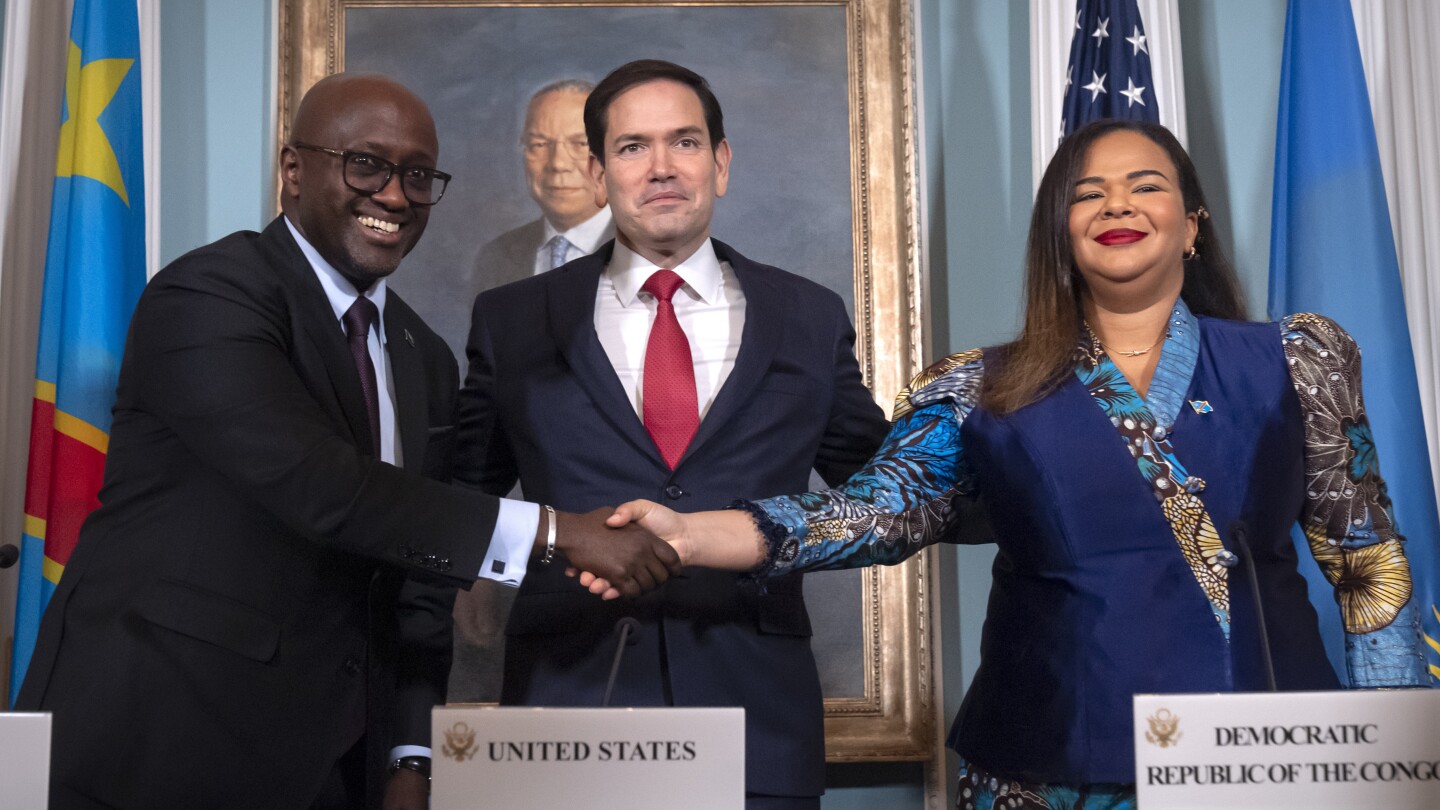WASHINGTON – In a significant diplomatic breakthrough, the Democratic Republic of Congo and Rwanda signed a US-mediated peace deal on Friday, aiming to end decades of deadly conflict in eastern Congo. The agreement, facilitated by the United States, also opens avenues for American companies to access critical minerals in the region.
Immediate Impact
President Donald Trump, addressing the foreign ministers of both nations at a White House meeting, declared, “Today, the violence and destruction comes to an end, and the entire region begins a new chapter of hope and opportunity, harmony, prosperity, and peace.”
The treaty was signed earlier in the State Department’s Treaty Room, with Secretary of State Marco Rubio heralding it as “an important moment after 30 years of war.” The conflict in Congo, involving over 100 armed groups, has claimed millions of lives since the 1990s.
Key Details Emerge
While the agreement is seen as a turning point, skepticism remains. Analysts caution that the deal may not quickly quell the violence, as the prominent M23 rebel group claims the agreement does not apply to them. Many Congolese view the deal as a strategic move by the US to secure mineral resources essential for global technology.
“Some wounds will heal, but they will never fully disappear,” said Congo’s Foreign Minister Therese Kayikwamba Wagner.
Rwandan Foreign Minister Olivier Nduhungirehe expressed optimism but acknowledged the challenges ahead, stating, “There is no doubt that the road ahead will not be easy.”
Regional Implications
The peace deal includes provisions on territorial integrity, cessation of hostilities, and the disarmament of non-state armed groups. However, M23 rebels, who have not been directly involved in the negotiations, suggest the agreement won’t bind them.
7 million people have been displaced in Congo, marking it as one of the world’s most protracted humanitarian crises, according to the United Nations.
The conflict’s roots trace back to the 1994 Rwandan genocide, which led to mass migrations and subsequent regional instability.
Expert Analysis
Christian Moleka, a political scientist at the Congolese think tank Dypol, described the deal as a “major turning point” but criticized it for overlooking war crimes and justice for victims. “This seems like a trigger-happy proposition and cannot establish lasting peace without justice and reparation,” he noted.
Hope Muhinuka, an activist from North Kivu province, stressed the need for justice, warning, “I don’t think the Americans should be trusted 100%.”
What Comes Next
The US role in the conflict’s resolution may hinge on access to Congo’s vast mineral wealth, valued at up to $24 trillion by the US Department of Commerce. The agreement aligns with US efforts to counter China’s influence in Africa, where Chinese companies dominate the mineral sector.
As the peace process unfolds, separate talks in Qatar involving the M23 rebels continue, highlighting the complexity of achieving lasting peace in the region.
The announcement comes as the international community watches closely, hoping for a resolution to a conflict that has persisted for nearly three decades, impacting millions of lives.
Asadu reported from Dakar, Senegal. AP writers Edith M. Lederer at the United Nations, Justin Kabumba in Goma, Congo, and Ignatius Ssuuna in Kigali, Rwanda, contributed to this report.
